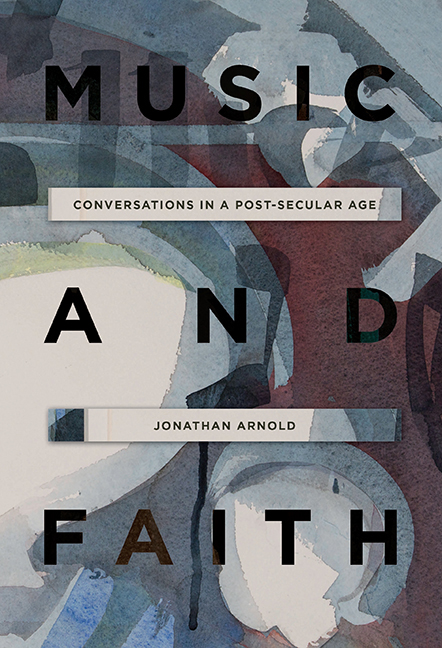Book contents
- Frontmatter
- Dedication
- Contents
- List of Illustrations
- List of Interviewees
- Preface
- Acknowledgements
- Introduction: Faith, Belief and Post-Secularism
- I MEDIEVALISM TO POST-SECULARISM
- II THE HUMAN MIND AND SOCIETY
- 4 Singing in Synchrony: Music, Bonding and Human Evolution
- 5 ‘Fear of the Mystery’: Music, Faith and the Brain
- 6 Music and Faith under Persecution
- Interlude II. An Echo of the Spheres in the Shires: The Enduring Appeal of Sacred Music at the Three Choirs Festival
- III BELIEF AND UNBELIEF
- Conclusion
- Notes
- Bibliography
- Index
4 - Singing in Synchrony: Music, Bonding and Human Evolution
from II - THE HUMAN MIND AND SOCIETY
Published online by Cambridge University Press: 01 September 2019
- Frontmatter
- Dedication
- Contents
- List of Illustrations
- List of Interviewees
- Preface
- Acknowledgements
- Introduction: Faith, Belief and Post-Secularism
- I MEDIEVALISM TO POST-SECULARISM
- II THE HUMAN MIND AND SOCIETY
- 4 Singing in Synchrony: Music, Bonding and Human Evolution
- 5 ‘Fear of the Mystery’: Music, Faith and the Brain
- 6 Music and Faith under Persecution
- Interlude II. An Echo of the Spheres in the Shires: The Enduring Appeal of Sacred Music at the Three Choirs Festival
- III BELIEF AND UNBELIEF
- Conclusion
- Notes
- Bibliography
- Index
Summary
I am convinced that music really is the universal language of beauty which can bring together all people of good will on earth.
‘Humans are a cultural species.’ We inherit and acquire a plethora of cultural practices, which fundamentally affect our behaviour. We may agree with Mesoudi that culture changes and evolves but, with regard to music, we may also agree with Davidson that, throughout human history, the creation and performance of music has had a constant and unchanging characteristic and aim – it has almost always involved a level of social communication. The ‘real or implied presence of others’, even when music is practised alone, points to the human need for social interaction. We have seen, in our brief exploration of the powerful social effects of psalms and hymns in the Judeo-Christian story, how music's social purpose has been a constant feature of Christian faith communities throughout history. Outside of any religious context, music, and especially singing, implies interaction: ‘singing a lullaby, a work song, a hunting song, or a school song; chanting as a member of a football crowd …’ and so on. A wide spectrum of research techniques in the psychology of music has developed in order to examine music as social behaviour, but in the realms of psychological or anthropological evolution, one scholar in particular has developed experimental techniques and analyses which help us to understand the fundamental importance of communal singing for our social cohesion and well-being.
Robin Dunbar is Professor Emeritus of Evolutionary Psychology at the University of Oxford. He describes his work as being ‘concerned with trying to understand the behavioral, cognitive and neuro-endocrinological mechanisms that underpin social bonding in primates (in general) and humans (in particular). Understanding these mechanisms, and the functions that relationships serve’, he says, ‘will give us insights into how humans have managed to create large scale societies using a form of psychological mechanism that is evolutionarily adapted to very small scale societies, and why these mechanisms are less than perfect in the modern world. This has implications for the design of social networking sites as well as mobile technology.’
- Type
- Chapter
- Information
- Music and FaithConversations in a Post-Secular Age, pp. 83 - 100Publisher: Boydell & BrewerPrint publication year: 2019

